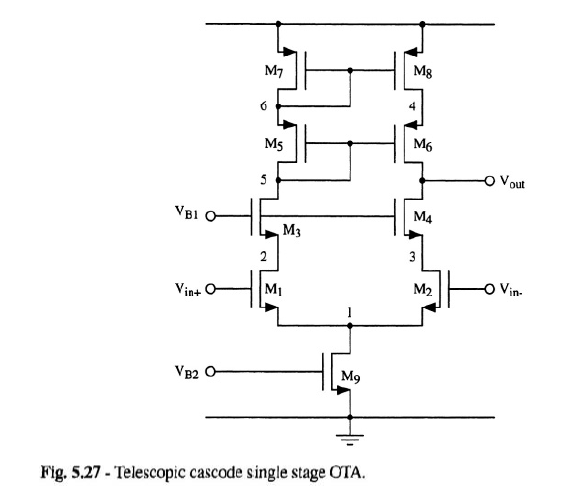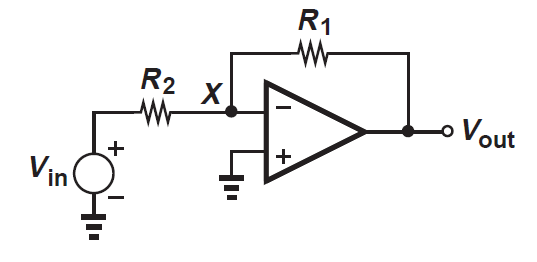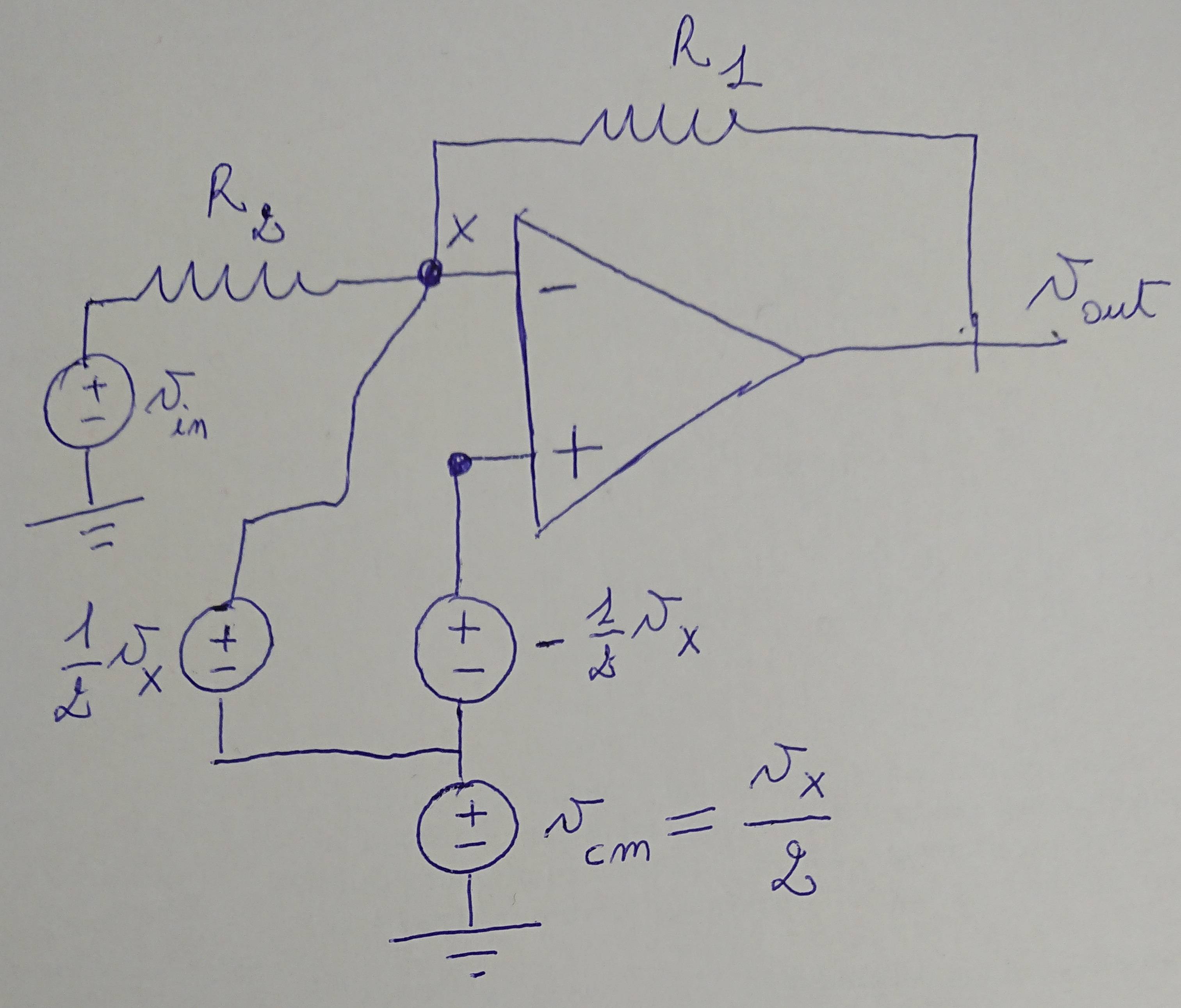Let's consider, for example, this circuit:
During lessons, our professor always assumed perfect differential input (two signals with the same dc value and with equal and opposite amplitudes). As a consequence node 1 will be an ac ground due to symmetry and the small signal differential gain can be easily found:
Now the question: when I close this circuit (or in general every circuit with a differential pair stage, which is the input block of an op-amp) with negative feedback, I will not have a perfect differential input, thus I am not allowed to use the previous differential gain (which was actually found under the assumption of differential input). Let's consider for example this basic circuit:
You can see that the non-inverting terminal is fixed to the analog ground, thus it can not change in a differential way with respect to the inverting terminal. In a similar question I wrote, I've been answered that actually you can always write a couple of signal as the sum of a common mode signal and a differential signal. Now I would like to have some hints on how to proceed with the analysis in this case. For example, considering the previous inverting configuration, I tried to decompose the input of the op-amp:
Is it correct? How to proceed with the analysis?
Thank you




